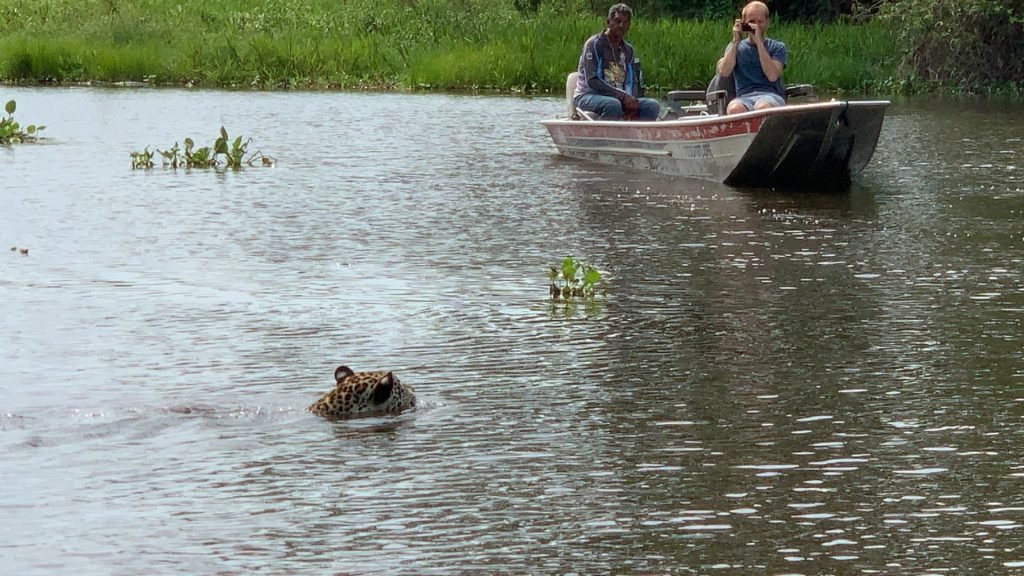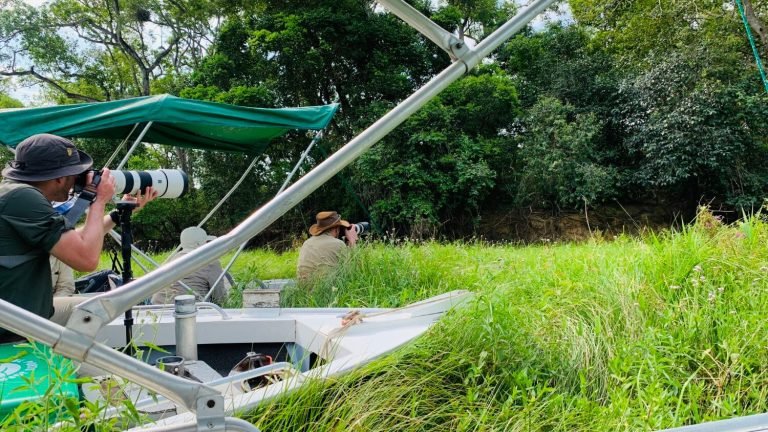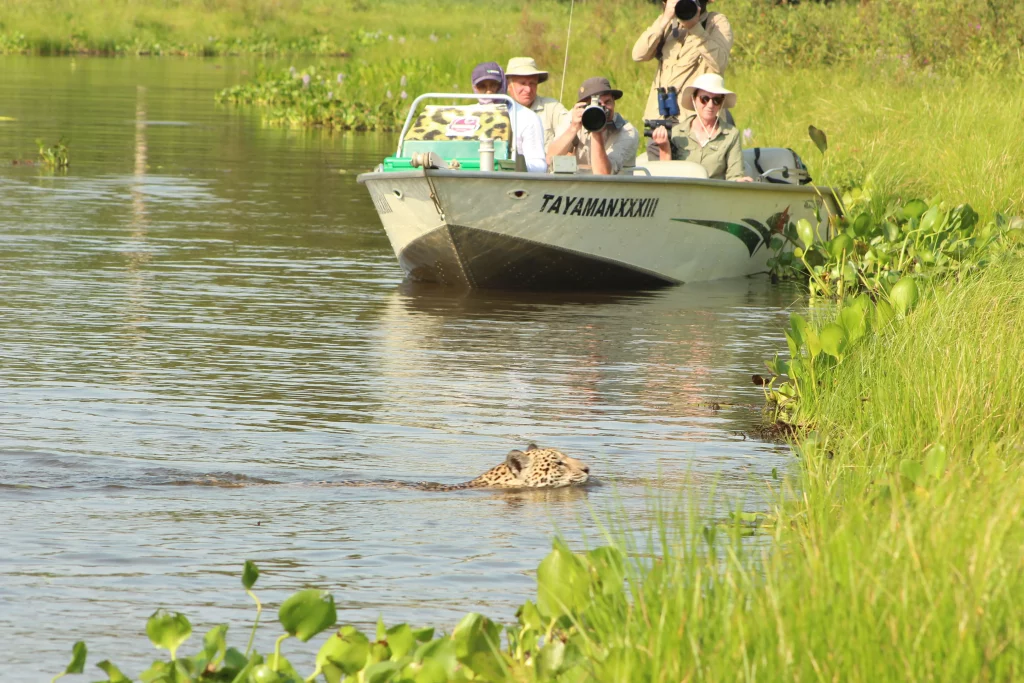Ecotourism in the Pantanal is a unique and exciting experience that attracts visitors from all over the world in search of adventure, contact with nature and the opportunity to explore one of the richest and most diverse ecosystems on the planet. Located in the heart of South America, the Pantanal is the largest wetland area in the world and is home to an incredible variety of fauna and flora, making it a paradise for wildlife and nature lovers.
Responsible Ecotourism
Ecotourism in the Pantanal is a responsible and sustainable way of exploring this spectacular region. Ecotourism values environmental conservation and wildlife protection, while offering visitors an authentic and enriching experience. The tours and activities are carefully planned to minimize the impact on the Pantanal ecosystem, ensuring that this rich biodiversity continues to thrive for future generations.
Wildlife Watching
One of the main attractions of ecotourism in the Pantanal is wildlife watching. The region is home to an incredible variety of species, such as caimans, capybaras, tapirs, deer, anteaters and a large number of birds, including macaws, toucans, herons and many others. The Pantanal is also home to the majestic jaguar, the largest feline in the Americas, and observing this predator in its natural habitat is an exciting and rare experience.
Ecotourism activities
Boat safaris and guided hikes are some of the most popular ecotourism activities in the Pantanal. Notably, local guides, specialized in wildlife and knowledgeable about the region, take visitors on trails and rivers to explore the diversity of animals and plants. Furthermore, these experiences provide close contact with nature and allow visitors to experience the grandeur of the Pantanal ecosystem.

Local Culture and Traditions
In addition to wildlife watching, ecotourism in the Pantanal also offers the opportunity to get to know the local culture and Pantanal traditions. Visitors can visit Pantanal cattle ranches and learn about life in the countryside, as well as try the delicious food typical of the region.
Local Community Benefits
Ecotourism in the Pantanal also contributes to the local economy and the preservation of traditional culture and way of life. Many local communities get involved in tourism, offering accommodation, food and guide services, which directly benefits the people who live in the region.
Ecotourism in the Pantanal: advantages and disadvantages
Ecotourism in the Pantanal is a form of sustainable tourism that offers numerous advantages for both visitors and the environment. However, it also presents challenges and some disadvantages that need to be addressed. Below are some of the main advantages and disadvantages of ecotourism in the Pantanal:
Advantages of ecotourism in the Pantanal
- Biodiversity conservation: Ecotourism in the Pantanal has a positive impact on the conservation of the region’s rich biodiversity. When visitors value the preservation of the environment, they respect wildlife and natural habitats, and contribute to the protection of species and their ecosystems.
- Environmental awareness: Close contact with nature during ecotourism in the Pantanal awakens environmental awareness in visitors. They have the opportunity to learn about the importance of conservation and how their actions can affect the environment. This awareness can spill over into their daily lives and influence more sustainable choices.
- Economic benefit for local communities: Ecotourism in the Pantanal directly benefits local communities, providing employment opportunities and sources of income. Tourism activities, such as lodging, food and guide services, generate income for the people who live in the region.
- Preserving local culture: Ecotourism in the Pantanal also contributes to preserving the culture and traditions of local communities. Visitors have the chance to learn about life in the countryside, typical cuisine and traditional festivities, creating an enriching cultural exchange.
Disadvantages of ecotourism in the Pantanal
- Impact on the environment: Although ecotourism is a more sustainable form of tourism, it can still impact the environment, especially when people do not carry it out responsibly. Tourist traffic in sensitive areas can disturb wildlife and degrade natural habitats.
- Risk of overcrowding: Ecotourism in the Pantanal has gained popularity in recent years, which can lead to an increase in the number of visitors to certain areas. Increased demand can overload local infrastructure and negatively affect the experience of tourists and the quality of the natural environment.
- Management and control challenges: Careful management is required in ecotourism to carry out activities in a sustainable and responsible manner. This involves regulating, monitoring activities, and ensuring adherence to environmental standards. Lack of proper control can lead to unsustainable practices and damage to the environment.
- Changes in local culture: The increase in tourism can lead to changes in the local culture and traditions of the Pantanal communities. Adapting to the demands of tourists can lead to a gradual loss of cultural authenticity.
In summary, ecotourism in the Pantanal offers a unique and enriching experience, providing significant advantages in terms of conservation, environmental awareness and economic benefit for local communities. However, to ensure that these advantages are sustainable, it is essential to address challenges such as environmental impact, proper control and the preservation of local culture. With a responsible approach, ecotourism in the Pantanal can continue to be a valuable way of connecting people to nature and promoting the conservation of this incredible ecosystem.



